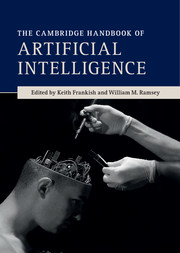14 - Artificial life
Published online by Cambridge University Press: 05 July 2014
Summary
Artificial life is one type of interdisciplinary study of life and life-like processes. (Artificial life is also referred to as “ALife,” “A-Life,” “alife,” and the like.) Artificial life has two distinctive properties. First, it studies life in any form in which it can exist, so it focuses on life’s essential features rather than its contingent features. Second, it studies life by artificially synthesizing and simulating new forms of life and life’s fundamental processes. Studying life by synthesizing and simulating it enables us to experiment with different forms of life in an especially flexible manner. This makes it possible to give sharp experimental answers to many general questions about the nature of life.
Artificial life research is mainly a scientific activity, but it also raises and illuminates certain philosophical questions. The first part of this chapter explains what artificial life is and how it is connected with artificial intelligence, and briefly describes some of its representative scientific achievements. The second part discusses some associated philosophical issues involving emergence, creative evolution, the nature of life, the connection between life and mind, and the social and ethical implications of creating life from scratch.
Keywords
- Type
- Chapter
- Information
- The Cambridge Handbook of Artificial Intelligence , pp. 296 - 315Publisher: Cambridge University PressPrint publication year: 2014
References
- 3
- Cited by

